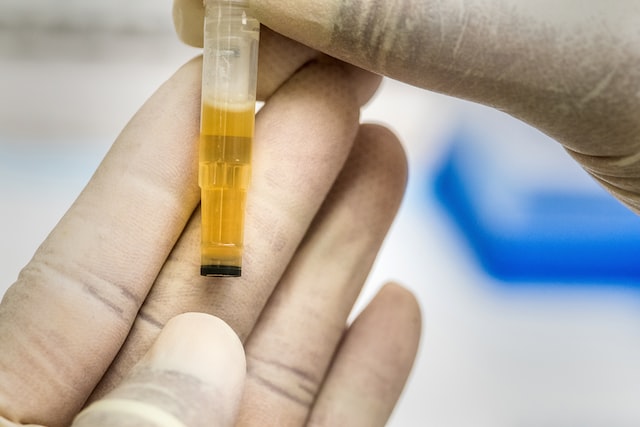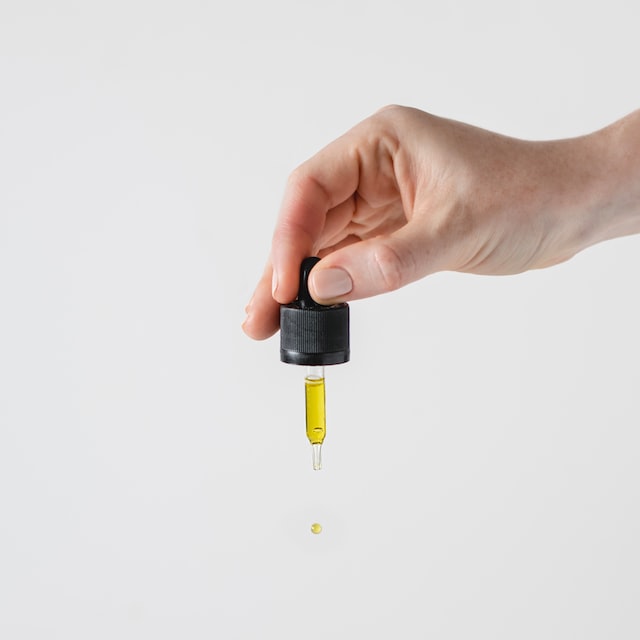
With legal cannabis and hemp plants at the center of many conversations, we have seen the availability of products with CBD extracts skyrocketing.
You’ve probably heard about the benefits of CBD products and have been considering using them. Or perhaps, you are already a user of CBD oils and gummies and now find yourself wondering: could I get a positive drug test result for using a Cannabis sativa plant component?
This doubt has been a compelling reason for many to consider its use. After all, no one would like to “fail” a workplace drug test for something as naive as using a health supplement. So, today, we are going to talk about CBD use and drug screening tests.
Does CBD Show Up On A Drug Test
If these tests don’t look for CBD, there’s nothing to worry about, right? The truth is that the answer is both yes and no simultaneously. If the subject has consumed CBD products from a reliable source, and it is not a full-spectrum product, it is likely to test negative. After all, drug tests only detect the toxic compounds in cannabis, i.e., THC metabolites.
Unfortunately, some CBD products contain a level of tetrahydrocannabinol (THC) that could lead to positive THC test results, such as those found in full-spectrum oils, which contain a small amount of THC. In the case of most reputable CBD oils, the THC content is so negligible (typically less than 0.05%) that there is no need to worry about exceeding this threshold. Health Canal E-Magazine has a lot of researched data on this subject.
Although rare, these legal and reputable products could give an initial “false positive” if the subject has consumed enough CBD oil). However, to put that in perspective, you would have to take an entire bottle in one sitting for something like that to happen; and that’s assuming your body hasn’t eliminated any CBD concentration at the time the test is taken! If you get a false positive, don’t worry. Another test should reveal the presence of CBD, which should solve the problem.
Different Types of CBD
Broad Spectrum CBD Products
These products have a lot of cannabinoids and terpenes, but THC is completely removed during the preparation. Broad-spectrum CBD oil is THC free.
Full-Spectrum CBD Products
Full-spectrum CBD oils have all the naturally occurring compounds of hemp plants, like flavonoids, cannabinoids, terpenes, and so on, including low levels of THC (0.3%). Pure CBD Isolate Full-spectrum CBD can cause you to fail a drug test.
CBD Isolates
These products only contain the CBD molecule. It has no cannabinoids like THC or terpenes. For those who want to avoid THC or with certain medical conditions, this might be the preferred option.
By Derivations
CBD can be derived from the Cannabis sativa or Cannabis indica plant. Hemp is Cannabis sativa L., while marijuana can be either Cannabis indica or Cannabis sativa. Therefore, CBD can come from either type of plant.
Hemp-derived CBD products are legal in the United States as long as they contain less than 0.3% THC, since the hemp plant produces more CBD than THC, which presents less risk of side effects and risk of addiction. These products are obtained from industrial hemp plants, and they tend to differ from marijuana plants as they have sparse foliage and are skinny.
Marijuana-derived CBD extract is obtained from the cannabis plant, which has thick foliage, and its flowers are consumed because of their high THC concentrations. In U.S. law, marijuana plants are understood as all those containing more than 0.3% THC.
However, it should be clarified that at the molecular level, CBD remains identical regardless of which plant it was extracted from.
How Do Drug Tests for Cannabis Work
Drug testing can be performed on different biological specimens, like sweat, blood, urine, saliva, and even toenails and fingernails. Urine drug tests are the most common form of workplace drug testing because of the ease of obtaining samples and because concentrations of drugs in urine are present for longer and are higher than those in blood.
These tests usually “search” the parent drug or the metabolites. They can test even both. The three most common are
- Saliva is the least invasive method and uses a buccal swab to detect the presence of various types of substances. This test is performed in a matter of seconds, but you have to wait up to 24 hours to receive the results.
- Urinalysis is the most common workplace drug test. It is slightly more invasive than the saliva test, but again, it takes only a few minutes, and results are usually ready within 24 hours. This test also has a more extended detection range than the swab test.
It should be noted that there is more than one type of urine test. The screening test allows for numerous tests to be performed at once. It uses antibodies for the detection of drug metabolites. The downside is that substances with similar characteristics can be detected, resulting in a false positive test result.
- Blood sampling is one of the most accurate testing methods and has a fairly long detection range.
It is important to note that none of these tests look for traces of CBD but focus on illicit or banned substances such as THC, amphetamines, opioids, and alcohol.
How to Avoid a Positive Drug Test When Using CBD
Workplace testing does not have to be a source of distress for those who consume CBD products. A study had the participants take daily doses of 0.60 mg of THC for 40 days. Only 1 of the participants failed the drug test. This study shows that it is unlikely, even for a full spectrum CBD oil, to lead to testing positive. That’s because the detection thresholds of THC metabolites are too elevated to detect the trace amounts of THC in a urine sample.
If you are still feeling unsure, here are some tips to use before workplace tests:
- Don’t expose yourself to marijuana smokers, as passing smoking could be counterproductive.
- Stop using CBD products for 20 days before the test.
- Use a home test to track your THC levels
- Drink a lot of water during the test day
- Use a THC-free CBD product, like CBD isolate or CBD broad-spectrum.
Summary
To end with a clear answer, it is doubtful that CBD will show up on your drug test. However, it is best to be knowledgeable about the products you are taking. This reliable source explains that cannabidiol extracts sold online are of utmost importance.

If your product contains what it says on the label in exact amounts, THC levels should not exceed the 0.2/0.3% limit, meaning that it meets the appropriate legal standards. Always look at the label to ensure the THC levels. A limitation of 0.3% is set by the Farm Bill in the United States, but abroad a limit of 0.2% is set for THC levels. A quick glance at your Certificate of Analysis from a third-party lab will tell you how much THC is present.





